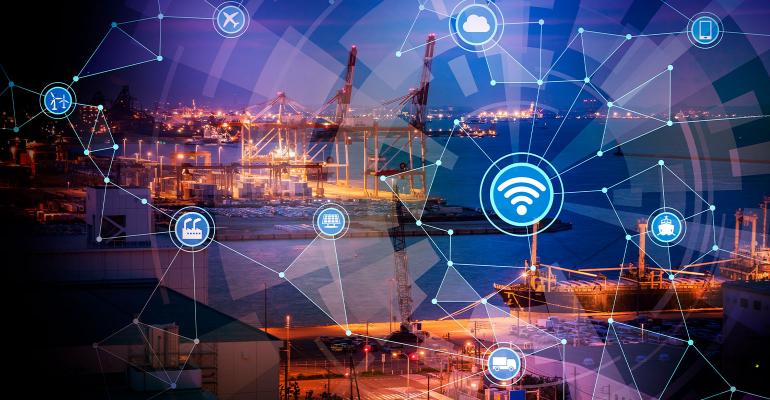At this year’s CrewConnect Global, we spoke to the leaders and stakeholders of this industry and found out about their views on the changes in the maritime industry and their impact on crewing and seafarers.
Julia Anastasiou, Crew Director – Conventional and Agency Fleets at OSM Maritime Group, talks to us about the biggest concerns in manning and training, the visibility of women in shipping, and how digitalisation is changing crewing and its impact on seafarers.
Lili Nguyen: What are the training and manning concerns of the future?
Julia Anastasiou: I would predominantly say that the first on my list is competence. Obviously, that is key to having the right people in the right roles on board our vessels. Lack of competence is the starting point where things, generally, tend to go wrong. So, having well-trained, competent seafarers is the key, the ultimate goal and the strategic objective that any shipmanagement company would have.
Second on my list, I would say, is correct communication skills. The reason why I emphasise correct is because everyone knows how to speak, but how they convey a message is extremely important. In terms of the situation on board the bridge or in the engine room, the communication between the different departments and the interaction between the crew is so vital that any slip up or any mistake can cause a very undesirable situation. So of course, communication skills need to be on par every time.
I think the third, which is also very vital and perhaps overshadows the first two, is attitude. You may be fully competent. You may have all the licences, certificates and background. You may also be very efficient in communicating. However, if you don’t have the correct attitude, the other two parts fail entirely.
So, a combination of these three elements is really what we as a shipping industry need to focus on in terms of manning and training needs in the present and in the future.
LN: Do you think it’s important for women to be promoted into leadership roles? What does that mean for the glass ceiling for this demographic?
Julia Anastasiou: First of all, I have to say, I’m extremely proud that we, women, are getting recognition on the highest level possible. The IMO have correctly recognised that it is time now for women to be recognised and to step up. In terms of women in shipping – yes, of course! I fully support it, not only for the industry but also within my own organisation, OSM.
We have actually surpassed the general average of women employees whether ashore and on board. I think going forward, we will see a huge impact of women within this industry and others that affect this industry. All I can say is that we will continue breaking each and every glass ceiling there is, successfully, and efficiently.
LN: How important do you think crew connectivity is in hiring and attracting seafarers?
Julia Anastasiou: Both you and I travel extensively. So, you need a means and outlet to stay connected to our family and friends at home. Likewise, the same thing goes for our seafarers, and if that facility is not in place, then you can understand they will easily go to the next company that will be willing and able to provide those benefits. I call it a benefit, but in reality, it is a basic need in today’s world. Staying connected and being able to quickly send an SMS or a chat and just find out how people are doing back home is just a basic need in today’s environment.
Going forward, I see that seafarers will also use this as a means to stay connected to the industry around them. What I mean by that is that you can easily access eLearning online through apps. For example, OSM has produced a myOSM app, which means our seafarers can stay connected 24/7. They know what their next planning is; they can access all their certifications; they can upload their certificates; they can see where all their colleagues and friends are; and they know exactly at any given moment what the plan is for them.
So, it’s not only about staying connected to family and friends. It’s about the industry; it’s about the changes in the industry; it’s about keeping up with news; and it’s also about the financial aspect. Everybody wants to know if they’ve been paid, if the money has gone into their account, if their families have been taken care of. So generally speaking, crew connectivity on board is a vital element of what we can provide today and tomorrow for our seafarers, and it will become a basic need, if it is not already one for most of the companies.
LN: How is big data and digitalisation changing the game for you?
Julia Anastasiou: You do see a number of companies now that are developing technologies with others. In the case of OSM, for example, we have a marine operations department set up, [which runs] 24/7, basically monitoring tool wear. You can understand where your vessels are, how they’re performing, what they’re doing at any given moment.
Part of this transformation is also providing a more efficient and strategically focussed service for the customer going forward. […] There are various platforms that are being developed in-house in order to expand the company’s infrastructure and provide a means for developing in the future. So, I think you’ll see that a number of companies are actually striving to either digitalise or use big data to help influence their own organisation. And again, to add services for the customers going forward.

